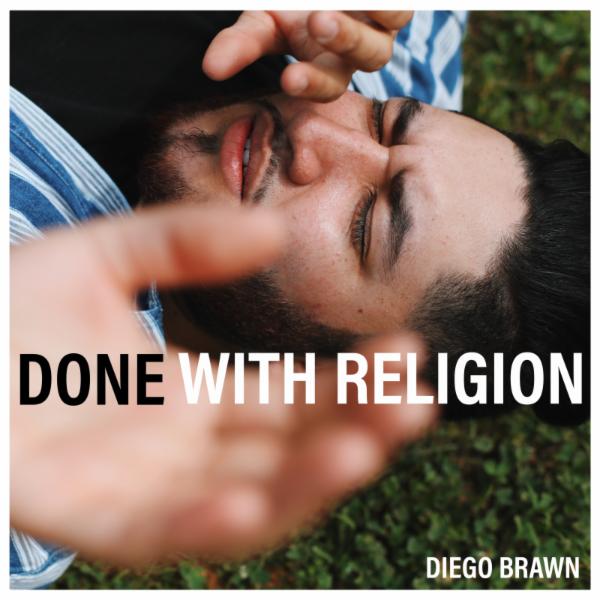by Rocky Glenn

Though I cannot remember the exact year, ever since I heard the opening bass riff of Queen’s “Another Bites the Dust” and saw Sylvester Ritter walk down the aisle with a chain attached to the dog collar around his neck as The Junkyard Dog barking at his opponents, I have been a fan of professional wrestling. From rushing through homework to catch the regional broadcasts on ESPN daily after school, I despised the defiant rule breaking of Jim Cornette’s Midnight Express as they fought Robert Gibson and Ricky Morton. On Sundays after church, I would stand right in front of the nine inch black and white television in my bedroom trying to get the antenna in just the right position to catch the local broadcasts of “Bullet” Bob Armstrong and The Tennessee Stud facing off against The Dirty White Boy and Tom Prichard. I hated Shawn Michaels after he kicked Marty Jannetty through Brutus “The Barber” Beefcake’s barbershop window, yet five years later when that same Heartbreak Kid had to forfeit his championship belt because he had “lost his smile” I was heartbroken. I remember the parade down the streets of Disney World as Hulk Hogan made his triumphant arrival in WCW, and, of course, was just as shocked as the rest of the world when wrestling’s greatest hero made wrestling’s greatest heel turn with the creation of the nWo. I have feared The Undertaker, smelled what The Rock is cooking, yelled “Wooo!” with The Nature Boy, had two words for D-X and given Stone Cold a “Heck Yeah!” (Remember, I was a church boy. I couldn’t dare say “Hell Yeah!”) Minus a period of just a few years, wrestling has been and continues to be a part of my entertainment consumption whenever it is broadcast and has now become an activity we share as a family.
I see wrestling as a type of theater. The wrestlers are nothing more than highly trained, highly athletic actors who have spent years crafting and perfecting their skills that allow them to take the hits, falls, and bumps in a manner to protect not only themselves but their opponents. When they yell, scream, and shout at each other on the mic, it’s only after they’ve spent time in class learning how to cut a successful promo that not only spurs the ire, agitation, and opposition of those they are speaking to or about, but also controls the emotion of the crowd and furthers the story line of the current angle they are working. Every single aspect of a wrestling event from the lights, pyrotechnics, and music to the commentators, ring announcers, and referees are for one purpose and one purpose only . . . to get the audience to believe and buy in hook, line, and sinker! All of these things are determined by the promotion’s booker. The booker is the man responsible for deciding which wrestlers will be liked or hated, how long matches will last, and even the outcome of the matches. If a wrestler is playing a heel, his job is to make you hate him. The more you boo him, the better job he’s doing. The opposite is true of a babyface. He’s supposed to be the crowd favorite and make you love him. Your applause and cheers are what he is after.
So, what’s the point of all this? Am I feeling so guilty for not writing in a while that I just feel the urge to confess my guilty pleasure? Is this just a walk down memory lane? Actually, it’s neither of those things, although I enjoy reminiscing about all the events above and also truly enjoy the reaction received when people find out about our family entertainment. As we began rediscovering and introducing the kids to sports entertainment a couple of years ago, the similarities between this sweet science that I have watched, loved, and shared with grandparents, my dad, and now my own family and the traditional church life I was feeling myself drawn away were too many to ignore.
As church attendees, we have perfected our performance. Come in, flash a smile, shake a few hands, maybe give a hug or two, take me seat, play my part, and pretend I have no problems for an hour. I will stand when you say stand, sing when you say sing, remain silent when I’m supposed to listen, and most definitely pay my admission when the offering plate is passed. I will do my part to ensure the program goes as planned and give my money to be certain the program will go as scheduled again next week.
As a musician, not only have I received instruction in how to be sensitive to the response of the congregation, I’ve taken pride in my ability to read and respond to the emotion of the moment. Although it was important to follow the printed color-coded order of service that was prepared to ensure every minute was accounted for, I knew to keep a watchful eye on the front row to receive the nod to continue or signal to play it again or wrap it up from the pastor. I’ve received requests, and complied, on numerous occasions to play or sing a certain song with the intention of soliciting a desired response or altar call. It was only after years of playing and, dare I say, performing that I was afforded this kind of trust and power. I had to prove trustworthy to those in charge before I had the opportunity to lead the service.
When it comes to professional wresting, the most common reaction we receive is someone looking at us and saying, “You know it’s fake, right?” The question is not a matter of wrestling being fake. Ask anyone who has ever climbed into the squared circle, fallen on the mat, or bounced off the ropes if the pain and bruises they experience is fake. For the most part, wrestling is planned, choreographed, and scripted. Those in the business use the term “kayfabe” to refer keeping the secrets of the wrestling business. Exposing the inner workings or secrets of the wrestling business is said to be breaking kayfabe.
It is time we as Christians break kayfabe. It is time to admit, as a good friend put it just days ago, that we’ve taught tradition as the commands of God for too long. It’s time to question why we do certain things. Are we performing to protect a tradition, an institution, something we’ve done our entire life just because we’ve been told to it? Are we seeking to keep others out because they are not experienced or have not yet proven trustworthy? When we read Jesus says, “Come to me all . . .” do we really believe that means all . . . regardless of gender, race, intelligence, sexual preference, economic status? In breaking kayfabe, we must admit we don’t have it all together. We must admit that for too long we’ve played a part. We must be real.
Wrestlers are performers . . . Christians shouldn’t be.
Rocky
(This post originally written September 4, 2017.)
Read Full Post »

























